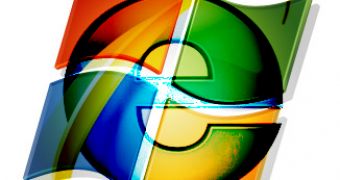Microsoft has confirmed officially that it will strip Internet Explorer 8 completely from Windows 7 SKUs aimed for European markets. The move comes as a response to antitrust concerns for the bundling of the Internet Explorer web browser and the Windows operating system. In this context, the Redmond company has announced that for the countries in the European Union it will cook a new SKU (Stock Keeping Unit) of its next iteration of the Windows client. The Windows 7 E edition will be made available exclusively in Europe and will not include Internet Explorer 8, or any browser for that matter, as a default component.
“Windows 7 will be offered in Europe in all of the versions that will be available here in the United States, both 32- and 64-bit, with an “E” at the end of the product name (for instance, Windows 7 Home Premium E). The E versions of Windows 7 will ship at the same time as Windows 7 ships in the rest of the world, and they will be available in 23 European languages,” revealed Dave Heiner, vice president and deputy general counsel.
Microsoft is on track to release Windows 7 to manufacturing in mid-July 2009, and to offer the operating system for purchase via retail and OEM channels come October 22. The software giant explained that it was indeed committed to meeting the deadline worldwide, including for Europe, but that at the same time it needed to take action in order to ensure that the operating system complied fully with local laws.
“Given the pending legal proceeding, we’ve decided that instead of including Internet Explorer in Windows 7 in Europe, we will offer it separately and on an easy-to-install basis to both computer manufacturers and users. This means that computer manufacturers and users will be free to install Internet Explorer on Windows 7, or not, as they prefer. Of course, they will also be free, as they are today, to install other Web browsers,” Heiner added.
In January 2009, the EU antitrust regulators provided a preliminary view indicating that the bundling of Internet Explorer in Windows was a move found to be in violation with European competition law. Microsoft stated at that time that it would fully comply with EU antimonopoly law, even though it fought to convince the European Commission that the IE and Windows marriage was not a monopolist tactic. With the RTM deadline of Windows 7 now but a month away, Microsoft is moving onward with the process of making the successor of Windows Vista available to the public via both the retail channel and pre-installed on new computers from OEMs.
Opera is available for download here.
Firefox is available for download here.
Google Chrome is available for download here.
Internet Explorer 8 (IE8) is available for download here.
Internet Explorer 7 is available for download here.

 14 DAY TRIAL //
14 DAY TRIAL //